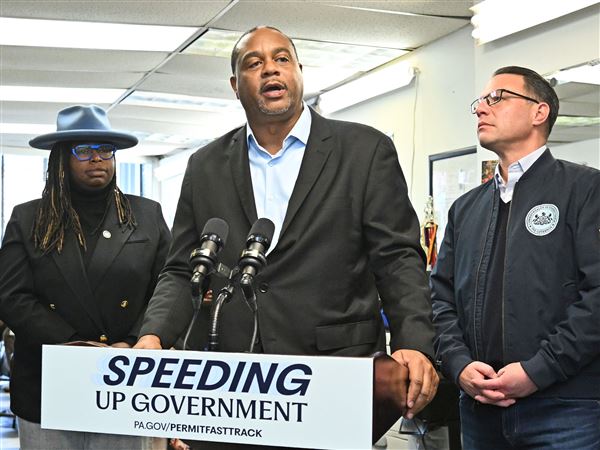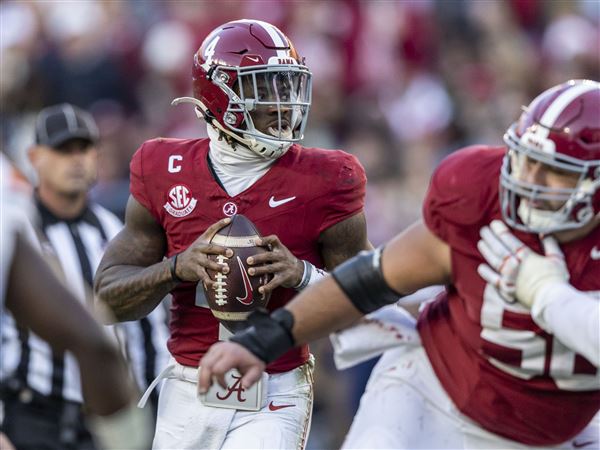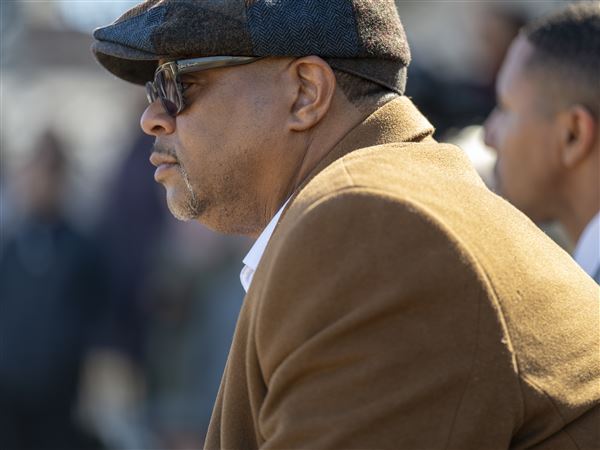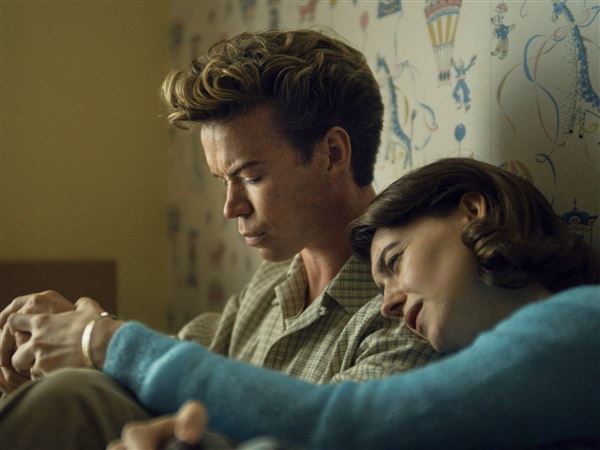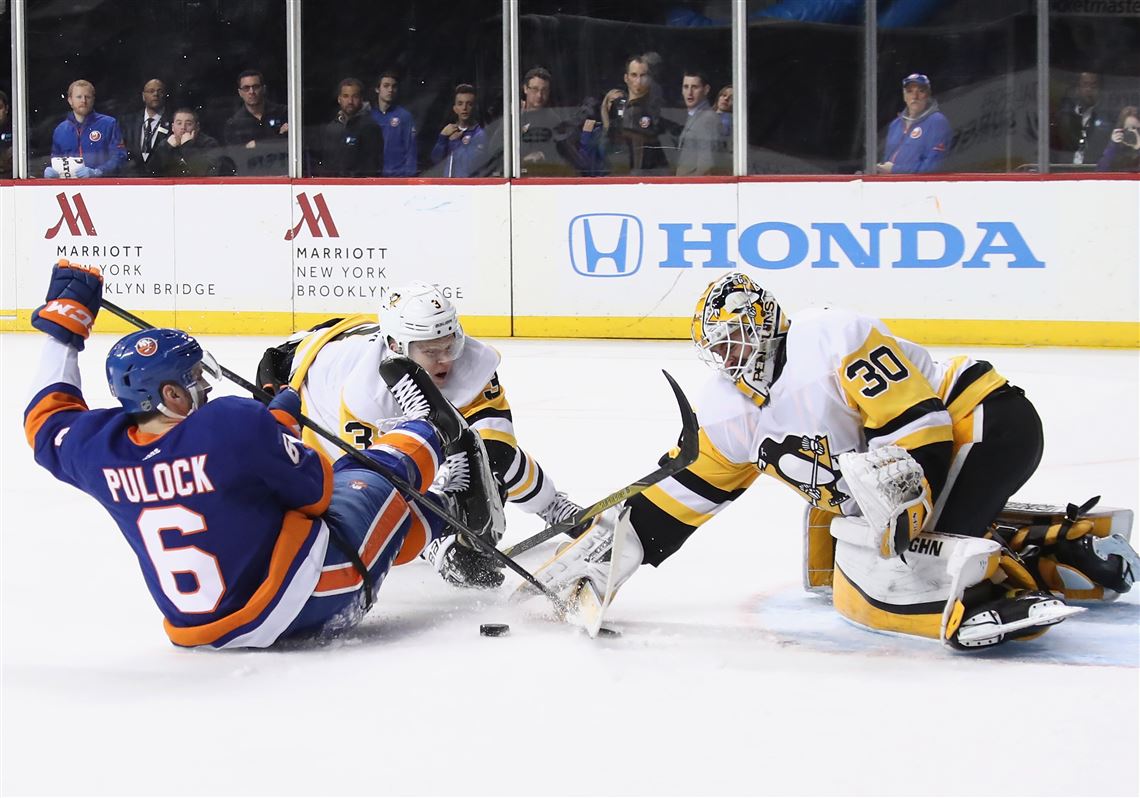BROOKLYN, N.Y. — Playing in a half-empty building, against a team that had just one win in its last 10 contests, the Penguins’ game against the New York Islanders Tuesday night at Barclays Center certainly didn’t have a playoff feel to it.
And the Penguins delivered a far-less-than-playoff-caliber performance.
Their 4-1 loss to the Islanders means two points lost in an air-tight Metropolitan Division playoff race as the final 10 games of the season get underway.
Mike Sullivan didn't care to elaborate much after the game, but did offer a pretty succinct analysis for what he thought went wrong for his team Tuesday night.
“We didn’t defend hard enough, we lacked discipline and we didn’t have a good start,” Sullivan said. “That was the story of the game.”
He’s not wrong.
Let's start with his third reason and work backward. The Penguins’ start Tuesday night was reminiscent of their first few minutes of their last game, Thursday in Montreal. Just in like that game, they were behind 2-0 in the first period. Against the Canadiens, they came back to level the score before the first intermission.
But after Matt Barzal and Adam Pelech put the Islanders up 2-0 in the first period Tuesday, they were able to hold that lead when the teams went into the dressing room.
The Penguins didn’t get on the board until Conor Sheary converted on a Phil Kessel feed late in the second period.
“I don’t think we got many bounces, but I don’t think that was the result of the game,” Sheary said. “I think we just weren’t ready to play. We let them get out to that two-goal lead and we took too many penalties.”
And there’s Sullivan’s second point — the penalties. The Penguins gave the Islanders five power-play opportunities. The penalty kill was able to come up with stops on the first four, but Anders Lee scored on the Islanders’ fifth and final man-advantage chance early in the third to make the score 3-1.
It wasn’t that the Islanders were necessarily cashing in on power-play goal after power-play goal, but the constant stream of Penguins to the penalty box — six different players served minors — prevented them from establishing any kind of offensive flow and getting back into the game.
“It makes a big difference,” Sullivan said. “Every time we tried to get into a flow, we took another penalty, and it’s hard to win that way. We didn’t have nearly the discipline we needed to have to be the team we want to be tonight. We beat ourselves.”
And finally, the Penguins allowed the Islanders to keep getting chances even after that slow start, as they were trying to mount a comeback. Matt Murray, playing in his first game back after missing nine with a concussion, faced 39 shots. His strong play, despite having missed nearly a month of action, was a major reason the Penguins were down only two goals in the third period.
“He made a lot of saves,” Sullivan said. “He made a lot of high-quality saves because the quality of the chances we gave up were too high.”
Yes, the Penguins had their fair share of chances against Christopher Gibson, who stopped 36 shots for the Islanders, and probably could’ve had a few more goals. But they know, as the calendar turns to April, they can’t rely on offensive firepower alone to win games.
“Obviously we had chances, but I don’t think we’re happy with the game we played,” Riley Sheahan said. “We were turning the puck over at the wrong spots, just making some lackadaisical errors. That’s what happens when you don’t play a consistent game.”
When asked if he felt his team has been inconsistent over the last few weeks, Sullivan delivered a terse “Yes.” His response to a follow-up question, on whether or not that’s particularly troubling at this late stage of the season?
“Yes.”
The Penguins are still almost certain to make the playoffs, but they don’t exactly have a ton of breathing room in the Metropolitan Division. At the end of games Tuesday night, they were tied with Columbus for second place, just a point ahead of the Flyers in the first wild-card spot.
They probably don’t have to worry about the Devils (five points back) or the Panthers (six points back) quite yet, but winning games is the only way to ensure that doesn’t become an issue.
“This was not our best game, but what can you do about it now?” Patric Hornqvist said. “The only thing we can do is have a better game tomorrow. Make sure we come out with a better effort and our mindset has to be better. I know it will be.”
Sam Werner: swerner@post-gazette.com and Twitter @SWernerPG.
First Published: March 21, 2018, 1:49 a.m.


